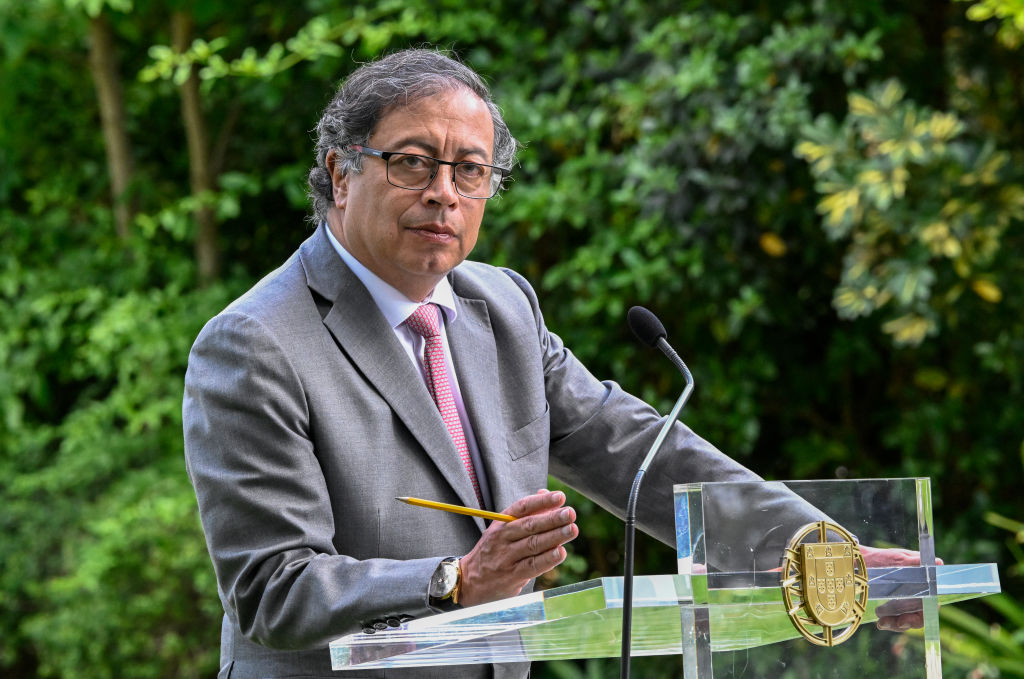In response to Mariana Palau’s article for AQ, “Colombia Is Missing Its Opportunity on Clean Energy” published on June 20, a reader writes:
BOGOTÁ —Too much of the reaction to the Petro administration, both here and abroad, is either unloving criticism or uncritical love, and a better reaction should be, more realistically, between those extremes. Mariana Palau’s recent article on Colombia’s environmental ambitions excessively downplays the real possibilities the president’s policies can bring for the country.
Early on, President Gustavo Petro promised reforms toward decarbonization and climate adaptation. He announced that he wants Colombia to pivot away from oil, natural gas and coal as part of a more sustainable energy policy. Never lost for words, he described the future to be a green escape from “a dirty fossil fuel economy of death.”
Petro’s pledges aren’t just campaign platitudes.
Undoubtedly, ending deforestation in the Amazon is a fundamental climate action, but stopping deforestation isn’t a panacea. Fossil fuels loom large, too. Colombia’s oil and coal sales make up half of the country’s exports. Taxes from the sector, and dividends especially from oil, make up 9% of the government’s income. Fully a third of all government revenue goes to service foreign debt—some of which needs to be restructured, if not canceled.
It’s possible for Colombia to reach 100% clean energy by 2030, in part because 70% of its current grid energy is from hydroelectricity. Supply side incentives for alternative energy are fast increasing. Both solar and wind are booming in the region with technical know-how fast developing. Previously marginalized Caribbean areas of the country enjoy solar radiation that’s well above global averages. Hydrogen production possibilities made significant progress in Colombia in 2021, though it will depend on water electrolysis and tumbling prices for clean electricity needed for production.
The country’s National Hydrogen Strategy and Roadmap includes plans to expand the hydrogen infrastructure in the transport sector focusing on the long-haul heavy-duty sector. In transport and for export, Colombia’s production of sulfur-free biofuels, in particular ethanol and biodiesel, have beneficial environmental impacts, reduce greenhouse gas emissions, and stimulate rural economic development. In 2022, biofuels in Colombia replaced more than 20,000 barrels per day of fossil fuels consumed and generated close to a 100,000 jobs. The fiscal impact of biofuel production is significant, both strategically for import substitution and for the dollar-sensitive needs.
I’m reminded of when China’s first Premier Chou En-lai (1949-76) was asked what he thought the effect of the French Revolution had been. His reply: “Maybe it’s too soon to tell.” And so it is with Colombia’s bold and adventurous energy policy. Gustavo Petro was inaugurated in August of 2022, almost exactly a year ago, inheriting another ongoing issue with a bearing on the government’s energy agenda: the upholding and implementing of the country’s landmark peace agreement with both recognized and not-yet-recognized armed groups. Resolving inequality in land tenure will be key. (The difficulty in combating the illegal drug trade remains the insatiable U.S. and European markets that feed the robust drug cartels.)
No matter what, Colombia’s clean energy transition will take decades. My own view is that fossil fuels will make up less than 20% of Colombia’s exports only after a decade, maybe even two, down from 60%. And Colombia could be helped in its economic transformation, as well as in reducing the country’s role, as in the case of so much of Latin America, in supplying raw materials to the U.S., and now increasingly to China— mostly mined with no environmental regulation, on unfavorable terms.
There is of course skepticism among economists, including the president’s own, about what will make up the lost oil and mining windfall. Petro has said that it will be agriculture and tourism that will make up for the lost revenue. Agricultural revenue will have to increase more than severalfold to match the economic contribution of mining. Tourism now counts for less than 4% of GDP, according to government data.
Petro cannot stand for reelection, which means that future governments could abandon his push. It’s not surprising that there’s been cabinet wrangling. No matter what, the challenge is to find synergies between climate protection and a prosperous and sustainable future for the most Colombians possible. President Petro might be comfortable to paraphrase Will Rogers: “Don’t let yesterday take up too much of today and nothing of tomorrow.” Rather than sell Colombia short, we should all champion Colombia’s march forward.
—
Thompson recently retired as the Maritime Environmental and Energy Technical Adviser at the U. S. Department of Transportation and holds a Ph.D. in economics. He is often in Bogotá.





